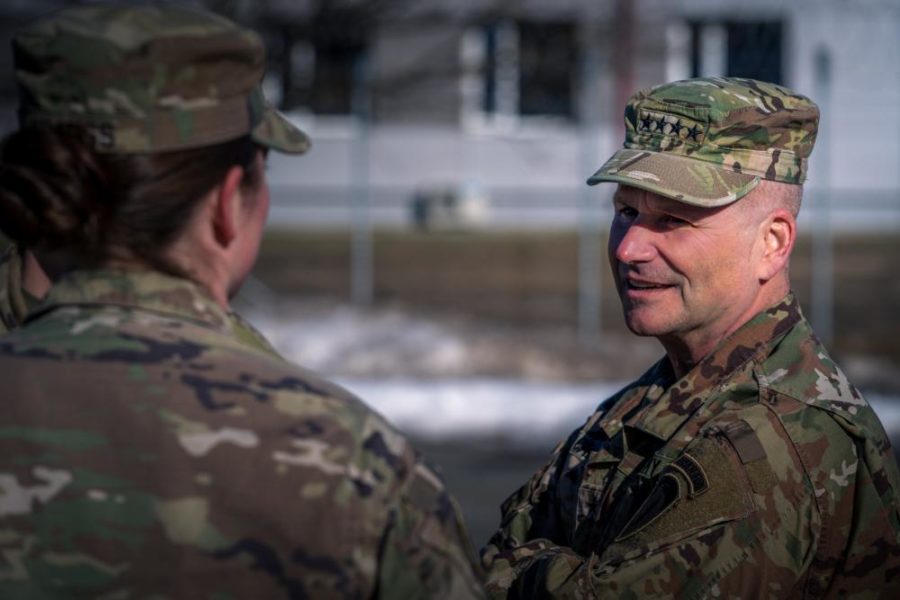President Joe Biden has nominated Army Gen. Christopher G. Cavoli to become the new commander of U.S. European Command and Supreme Allied Commander Europe, the Defense Department announced May 3.
If confirmed, Cavoli would replace Air Force Gen. Tod D. Wolters. That transition will be especially critical as Europe and NATO deal with the fallout of Russia’s invasion of Ukraine, one of the continent’s biggest security crises since World War II.
Cavoli speaks Russian and has served as the Joint Staff’s director of Russia for and as a foreign aArea officer with a concentration on Eurasia. He currently serves as commander of U.S. Army Europe-Africa, overseeing more than 60,000 Soldiers, though that number has grown recently with new U.S. deployments to Europe to bolster NATO’s eastern flank and to provide deterrence against Russian aggression.
Starting in January 2018, Cavoli assumed command of U.S. Army Europe until October 2020, when he took over the newly consolidated U.S. Army Europe-Africa. Cavoli has also served as commander of the 25th Infantry Division, the 7th Army Training Command, a batallion, and an infantry brigade combat team.
Wolters confirmed in a March 29 hearing before the Senate Armed Services Committee that he would be stepping down in the near future after taking command in May 2019. News of Cavoli’s nomination was first reported by the Wall Street Journal in April but not officially announced for several weeks.
With a dynamic situation still unfolding, European force structure could look far different in the coming months and years. Already, Germany and Italy have pledged to boost their defense spending dramatically, while Sweden and Finland are moving quickly to potentially join NATO.
At the same time, the Pentagon has emphasized that Russia remains an “acute” threat, and some fear that Russian President Vladimir Putin may resort to biological, chemical, or even nuclear weapons in his war against Ukraine, which has dragged on far longer than expected and is becoming increasingly brutal.
Against this backdrop, Defense Secretary Lloyd J. Austin III recently visited Ramstein Air Base, Germany, to host 40 other nations for the Ukraine Defense Consultative Workshop, dedicated to better coordinating the rapid transfer of weapons to Ukraine and considering the country’s future defense needs against Russia.
The U.S. alone has delivered billions of dollars worth of lethal aid to Ukraine in the form of millions of rounds of ammunition and a long list of weapons including anti-tank Javelin and anti-air Stinger missiles, with billions more likely on the way. If confirmed, Cavoli will have to help oversee a massive logistical effort to deliver that aid to Ukraine.
With Wolters’ upcoming departure, two Air Force generals will be left among the 11 combatant commanders—Gen. Glen D. VanHerck, head of U.S. Northern Command; and Gen. Jacqueline D. Van Ovost, head of U.S. Transportation Command.
